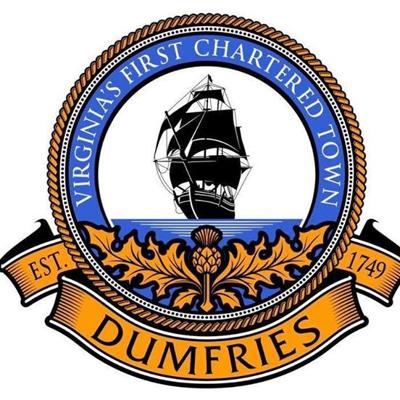Recreational marijuana still isn’t legal in Virginia and medical patients face access challenges
While recreational marijuana is technically legal in Virginia, the path to purchasing it in stores is still a long way off.
In February, Republicans in the House of Delegates killed legislation that would have allowed limited retail sales later this year. The state’s recreational market is scheduled to begin in 2024, but with a long regulatory road ahead, there’s a strong likelihood that products won’t become available until months or even years later, according to JM Pedini, development director of the National Organization for the Reform Marijuana Laws, or NORML.
With recreational sales stalled for the foreseeable future, Virginia’s medical cannabis program remains the only way for most residents to legally acquire marijuana short of growing it themselves. Currently, though, there are only 46,935 registered patients in Virginia, according to data from the Board of Pharmacy — a small number compared to the state’s overall population of more than 8.6 million.
Pedini, who also serves as executive director of Virginia’s NORML chapter, said that’s largely due to barriers that still exist within the program, despite significant growth over the last three years. Unlike the early stages of the state’s gradual foray into medicinal marijuana, patients now have access to a broad array of products, from edibles to flower, rather than the low-THC oil originally offered through the program. And Virginia’s licensed processors are now able to open up to five additional retail dispensaries, gradually increasing availability.
“So, in some ways, this program is amazing,” Pedini said. In other ways, though, medical cannabis has struggled to gain greater traction in Virginia. Advocates say part of the problem has been the registration requirements for providers and particularly for patients, who frequently face a lengthy wait to legally purchase products.
Currently, cannabis patients face a three-step process. The first is obtaining a written certification from a registered practitioner — in Virginia, a doctor, a physician assistant or a nurse practitioner — attesting they would benefit from the drug. The second is registering with the state’s Board of Pharmacy and waiting for approval.
Practitioner enrollment in the program has traditionally been slow and many major hospital systems, including Bon Secours, Sentara and UVA Health, still outright forbid their providers from offering certifications or only allow cannabis in narrow circumstances, such as clinical trials or treatment-resistant seizures. Currently, there are 703 registered practitioners out of the roughly 41,544 eligible doctors, physician assistants and nurse practitioners across the state, according to the Board of Pharmacy.
Despite the progress, many advocates and providers say there are still limitations that hinder patient participation. There’s the procedural component, including finding a licensed practitioner, getting a written certification and finding a dispensary, which can be another challenge. Currently, there are only 11 across the state, and one of Virginia’s health service areas — a large swath of that includes Winchester and Charlottesville — doesn’t have any licensed processors, the result of an ongoing legal battle.
There’s also the price. Medical cannabis is almost never covered by insurance, and providers often charge between $100 and $150 for a written certification. Products in Virginia often cost double what they do in other markets, including Washington, D.C., which some processors have attributed to the state’s extensive regulations. A small tub of cannabis-infused salve from one Virginia processor, for example, is priced at $75 online.
More concerningly, to Adams, is the availability of products, especially in the formulations preferred by many of her patients. GLeaf Medical, for example, lists 20 different vape cartridges for sale at its location in Manchester but only a single tincture, which is often preferred by pain patients. At least currently, it’s not offering any nasal spray, a formulation that’s been used to treat patients with seizures.
“When you’re making vape cartridges that are 60, 70, 80, 90 percent THC, these are not medical products in my mind, at least for most people,” Adams said. “These are products that are for profit, and directed toward that sort of commercial market, which doesn’t exist yet.”
“We need tinctures, we need edibles, we need tablets, we need suppositories — we need products intended for medical delivery,” she added. “And we need product consistency.” Adams said one of her patients was affected when a processor changed the ratio of CBD to THC in one of the company’s tinctures, which made the treatment less effective for her.
The challenges faced by many patients underscore Virginia’s strange regulatory landscape as a state where marijuana is legalized but a recreational market still doesn’t exist. Ashley Allen, the vice president of government relations for Columbia Care — one of the state’s licensed processors — said the industry has been stymied in some ways by the lack of adult-use sales.
When marijuana does become widely available in Virginia, Adams said she’d like to see Virginia’s medical program become even more patient- and practitioner-focused. Both she and Baldwin expressed concern that some practitioners viewed written certifications more as a business venture than a way to support patient care.
Virginia does require pharmacists to oversee the production and sale of cannabis, and dispensaries are required to have them on site to discuss products with patients (another mandate that adds to high costs, some processors say). There have also been efforts to improve continuity of care among medical providers. The bill that removes registration requirements for patients also prohibits them from acquiring written certifications from more than one practitioner — an effort to crack down on what Adams described as “fly-by-night” clinics for medical cards.
In the future, she’d like to see more training requirements for practitioners who offer medical cannabis certifications, as well as greater discussion on how to evaluate whether products are working for patients. But Adams said any new additions to the program should come after there’s better access to cannabis and more widespread availability.
(Editor’s Note: This article was published with permission by the Virginia Mercury and edited for content.)


